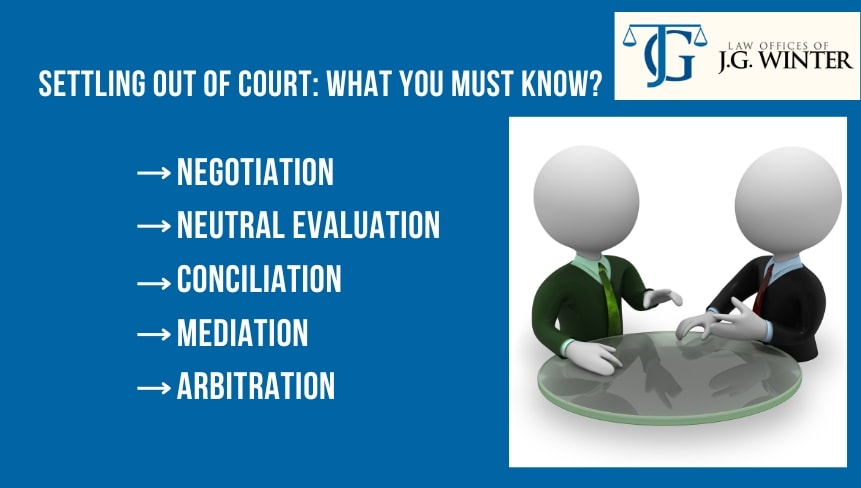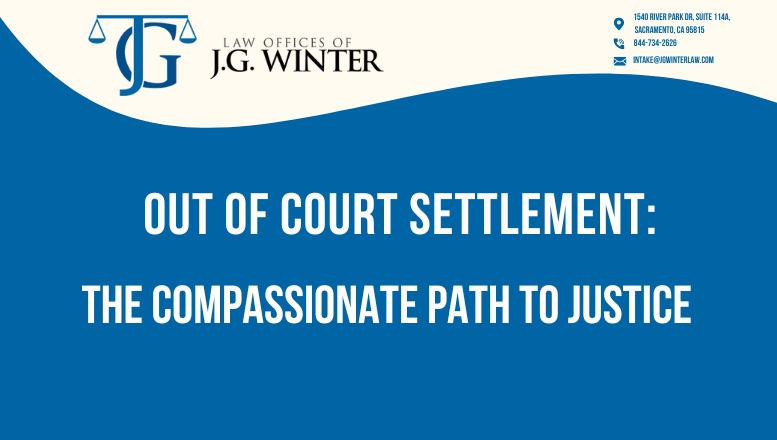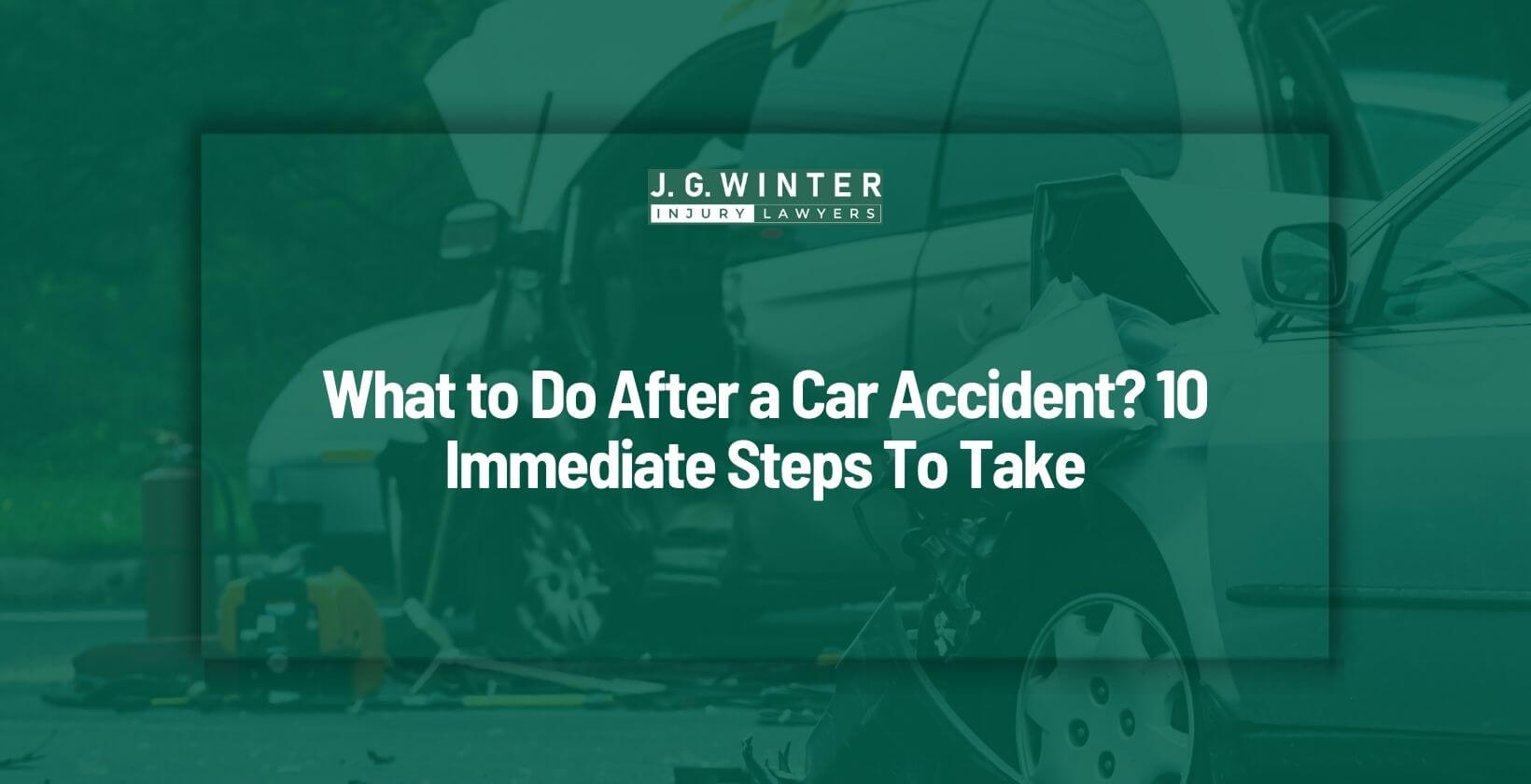Dealing with a personal injury due to negligence brings financial strain and emotional distress. Courtroom trials may be stressful and lengthy when pursuing justice after an injury, with uncertain outcomes. Meanwhile, insurance companies may undervalue claims, forcing you to question whether to opt out of court settlement for a speedy resolution or risk a trial for deserved compensation.
Navigate justice out of the courtroom
Navigating justice beyond the courtroom is a compassionate alternative!
Dealing with a personal injury can be even harder when faced with the stress of a long trial, financial strain, and the chance of getting a low settlement from insurance companies. The worry about not being treated fairly by insurance companies can make tough decisions even more complicated. You can make the right choices by getting to know both the emotional and practical sides and focusing on fair solutions instead of long court fights.
Many personal injury claims are resolved through alternative dispute resolution, which provides a faster and less emotionally taxing route to justice.
What are out of court settlements?
Settling out of court is a voluntary legal dispute resolution without court involvement. In this settlement, you and the other party agree to resolve the matter independently. You cannot force the other to opt for this approach and vice versa.
This process typically involves negotiation or other resolution methods, offering a flexible and collaborative way to resolve legal conflicts outside traditional court proceedings.
Settling out of court: What you must know?
Settling out of court involves alternative dispute resolution methods that saves time and costs and maintain privacy.
Understanding key aspects of this process is crucial.

Negotiation
Negotiation holds a central role in resolving personal injury disputes. This process involves seeking a settlement through letters or direct talks, offering a more relaxed and straightforward method than other more formal dispute resolution options. Negotiations focus on open communication and working together to find a friendly solution, considering the specific details of each personal injury situation. This method highlights the value of a tailored and understanding approach to resolving disputes, making the journey to a settlement smoother.
Neutral evaluation
Neutral evaluation is a dispute resolution process where a neutral third party, usually an expert in the subject matter, assesses the strengths and weaknesses of each party’s case. Both sides present their arguments, and the evaluator provides a non-binding opinion on potential resolutions. Unlike arbitration or mediation, parties don’t bind themselves to the opinion but often leverage it as a foundation for settlement discussions. This approach reduces the time and expense of settling cases, especially with personal injury claims. This is achieved by offering an early expert evaluation and making negotiations quicker and more effective.
Conciliation
Conciliation is a dispute resolution process similar to neutral evaluation, where a neutral third party, the conciliator, is enlisted to facilitate a dispute resolution between two parties. The conciliator carefully examines the cases presented by both sides, understands the underlying issues, concerns, and interests involved. Unlike binding arbitration, the solution suggested by the conciliator isn’t obligatory, so both parties have the freedom to accept or decline the proposed resolution.
The conciliator’s role is to guide the parties toward a mutually agreeable and amicable outcome, fostering a cooperative and collaborative environment for resolution. Conciliation provides a voluntary and flexible alternative for disputing parties, offering an impartial perspective and assistance in finding common ground. It allows the parties to actively participate in the resolution process, maintaining control over the final decision while benefiting from the insights and recommendations of the conciliator.
Mediation
Mediation is a voluntary and non-binding dispute resolution process where a neutral mediator facilitates communication between opposing parties to help them reach a mutual agreement. Unlike other methods, like conciliation, the mediator doesn’t propose solutions. Both parties must agree to participate, and any agreement reached is binding only if both agree to it. Mediators, who often come from legal professions, guide dialogue but don’t make judgments. It’s a widely accepted alternative in various fields, providing flexibility and collaboration for crafting resolutions in areas like personal injury law and insurance.
Arbitration
Arbitration is a formal ADR method that resembles a courtroom trial and is for settling personal injury claims. The process involves a neutral arbitrator or panel, and the decision is termed an “award.” Arbitration is less formal than a trial, with flexible rules. It can be either binding, where both parties accept the decision as final and waive the right to a trial, or nonbinding, allowing either party to request a trial if dissatisfied. If arbitration fails, the case proceeds to civil court for a formal personal injury trial.
Other elements you should know about out of court settlements
In addition to the various alternative dispute resolution methods, exploring out of court settlements for personal injury cases uncovers additional important factors that can significantly influence the outcome of your case.
It is crucial to recognize that an out of court settlement is not just a handshake. It’s a bona fide contract. This agreement establishes the terms between you (the injured party/plaintiff) and the defendant (the responsible party). Just like any other contract, it outlines the rights and responsibilities of each party involved and is legally binding. Courts can ensure that the agreed settlement is honored, emphasizing the gravity of achieving an out of court settlement.
Additionally, unlike trials, where proceedings and records are laid bare for public scrutiny, out of court settlement details are confidential. So, if you prefer to keep your financial matters private, choosing an out of court settlement could be the solution you’re seeking. Maintaining privacy is a significant advantage in these cases as it lets you resolve matters discreetly and shields sensitive information from prying eyes.
Moreover, the financial aspect is not just about what you gain. Although a settlement can cover your physical injuries tax-free, there’s a twist. The IRS pays close attention to the specifics of those injuries. As per their rule, damages for visible injuries are tax-free. However, if your compensation extends to suffering, emotional distress, or punitive damages, be prepared to see a portion of that settlement on your tax bill.
In complex personal injury cases, out of court settlements emerge as a sophisticated solution with legal weight, confidentiality perks, and financial considerations.
Should I go to court or settle outside the court?
Going to court or settling outside the court depends on various factors. Sometimes, settling outside the court is an easy and practical approach, especially in personal injury cases. However, sometimes, settling outside of court may not be the best option. Ultimately, the decision to go to court or decide outside of court depends on the specific circumstances of your case. Here are some reasons you should opt to court or settle outside the court.
Advantages of going to court
If you believe a trial is the only way to achieve a just outcome, pursuing legal action in court is beneficial. Other advantages of going to court include:
- It holds the at-fault party publicly accountable, as trials are transparent. Additionally, going to trial provides the potential for a larger monetary award, as a jury may award compensation based on the full extent of your injuries.
- Going to court can offer meaningful closure by allowing the victim a chance to share their experience of the injury in a formal environment, providing validation and aiding in emotional healing.
Disadvantages of going to court
Opting for a court trial comes with notable disadvantages, which you must consider before pursuing legal action.
- There is a lack of privacy, as court proceedings are public, potentially causing emotional distress. Also, court trials involve longer waiting times than settlements.
- The outcome of a trial is uncertain, and you will have less control over the jury’s decision, especially if the evidence is not strong.
Advantages of settling out of court
If you have sustained injuries in accidents, choosing to settle without going to trial is often a wise decision. It helps in avoiding time and is cost-friendly. Out of court settlements offer several advantages, extending beyond time and cost savings, and that include:
- They ensure a faster resolution than the uncertainty of a courtroom verdict, addressing immediate financial needs.
- It promotes confidentiality and privacy, sparing you from public scrutiny and media coverage associated with courtroom trials. This confidentiality can be compelling if you value privacy and seek to avoid public exposure.
Disadvantages of settling out of court
Out of court settlements have certain drawbacks that you must consider, and they are:
- Opting for an out of court settlement may result in significantly reduced compensation compared to a trial.
- Settling too fast could also mean not knowing the full extent of injuries, hindering the pursuit of full compensation. Additionally, settling may not force the defendant to pay if they resist during negotiations.
You must weigh your options carefully and consult a Sacramento personal injury lawyer before deciding whether to go to or settle outside the court.
Do all lawyers recommend settling out of court?
Not all lawyers recommend settling out of court, but a common recommendation influenced by carefully analyzing various factors.
Always communicate openly with your legal team to ensure you make informed decisions that align with your best interests. If your legal team suggests settling, it’s crucial to trust their expertise and consider the potential benefits, including cost savings, time efficiency, and a more predictable outcome. Legal battles are complex, and you should decide to settle or proceed to trial with a clear understanding of your case’s unique dynamics.
Calculating the worth: How much should you seek in a personal injury settlement?
Determining a personal injury settlement involves calculating economic and non-economic damages. Monetary damages, such as lost wages and medical bills, are relatively straightforward to calculate by adding documented expenses. However, estimating future costs, like potential corrective surgery, may require assistance from an attorney. On the other hand, non-economic damages, which encompass emotional trauma and intangible losses, are more challenging to quantify.
Experienced attorneys like us at the Law Offices of J.G. Winter can help accurately calculate these damages to ensure a fair and comprehensive personal injury settlement that maximizes your compensation.
It’s always best to have a lawyer by your side: Why a lawyer is your better companion?
When navigating the complexities of an outside settlement, having a lawyer by your side is not just a smart decision but a crucial asset that can make all the difference. In these situations, a lawyer serves as more than a legal representative; they become your reliable companion, offering guidance and expertise that can significantly impact the outcome of your case.
One of the common concerns is, “how much does it cost to hire a personal injury lawyer?” Most personal injury lawyers work on a contingency fee basis, meaning they only get paid if you win your case. This approach makes legal representation accessible without upfront costs, aligning the lawyer’s success with your own.
The legal landscape can be overwhelming, and having a lawyer gives you a steady and experienced hand to navigate it. They bring a deep understanding of the legal intricacies and a professional commitment to safeguarding your rights and interests. This professional support can alleviate the emotional strain that often accompanies legal matters, providing you with a sense of assurance and clarity.
Effective negotiation skills are paramount during out-of-court settlements. A lawyer’s ability to articulate your position persuasively can be the key to reaching a fair and favorable resolution. They ensure effective communication of your concerns, contributing to a more balanced and just outcome.
Standing with you in times of need: The Law Offices of J.G. Winter

The Law Offices of J.G. Winter offers top-tier legal representation to ease the financial burden and emotional toll after a devastating accident. Specializing in serious accidents in Sacramento, California, we provide compassionate support throughout the legal process, acting as advisors and companions in out of court settlements. Contact us now.
Opting for settling out of the court is choosing a path that respects relationships, finds common ground, and allows for moving forward without the scars of a courtroom battle. If you are uncertain about the legal path, remember that attorney Jeremy Gordon Winter is here for you. We’re not just legal professionals but compassionate allies dedicated to standing with you in need.
Our Commitments
- Free Consultations: We offer free consultations for our new clients, providing an opportunity to discuss your case without financial obligation.
- Respect and Compassion: We treat our clients with tremendous respect and compassion, understanding the emotional and physical toll of their injuries.
- No Win, No Fee: You only pay us if we win your case, ensuring our interests align with yours.
- Accessible Support: We are available to you every step of the way, offering constant support and guidance during the legal process.


